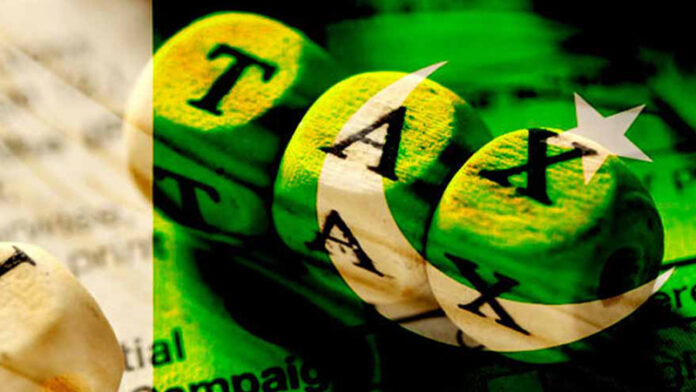The Islamabad High Court (IHC) has granted petitioners a reprieve in the form of a stay order, forestalling the implementation of the super tax as stipulated by the Finance Act 2023. The petitioners have challenged the retrospective application of the newly-minted tax slabs for the tax year 2023, which have been imposed upon them brought forth through amendments in the Finance Act.
Furthermore, they have implored the IHC to mandate the collection of the super tax in congruence with its ruling on the application of the super tax for the tax year 2022 in Fauji Fertilizer Company Limited v Federation of Pakistan. For those interested in the verdict in the case, Profit has covered the matter in detail previously:
Read more What the IHC’s judgement on the Super Tax means and what will happen next
“When they introduced the super tax as part of Amendment 4C to the Income Tax Ordinance (2001), they specified the rates at which the tax would be paid,” elucidates Asad Ladha, Partner at Raja Mohammad Akram & Co and one of the petitioners.
“Now, everyone was expecting that if you were in the highest income slab, then you would be required to pay 4%, as was previously mandated,” Ladha continues. “However, what transpired was that upon the conclusion of tax year 2023, they brought forth an amendment on 1st July 2023, whereby they revised the income slabs – and applied this retrospectively,” Ladha adds.
“Our argument, as before, is that you cannot apply a tax rate retrospectively if there is already an expectation that a certain rate must be paid – if it must be paid at all,” Ladha asserts. “Thus, this forms the new basis for our challenge.”
So, what did the Finance Act 2023 do to the super tax?
The Finance Act 2023’s changes to the Super Tax
In 2022, the Government introduced the concept of a super tax on high-earning individuals through the Finance Act. Slab-wise rates were prescribed for the 2022 tax year, with a maximum rate of 4%. For certain specified sectors, an enhanced rate of 10% was prescribed for the 2022 tax year only, while for banking companies, a 10% super tax was to be applicable for the 2023 tax year. The higher rate of 10% was applicable in both cases only where the income exceeds Rs 30 crores.
Constitutional petitions were filed before different High Courts in relation to the retrospective application of the super tax for the 2022 tax year and the enhanced rate applicable for specified sectors. The High Court of Sindh held that it was inapplicable for the 2022 tax year and declared that the enhanced rate for certain specified sectors in excess of 4% was ultra vires, being discriminatory. This decision is currently sub-judice before the Supreme Court.
Similarly, the Islamabad High Court (IHC) asked for the super tax to be written down. The Lahore High Court (LHC) held that the application of a higher rate of 10% on specified sectors was ultra vires, being discriminatory; however, LHC upheld the levy of super tax for the 2022 tax year.
Through the Finance Act 2023, the Government introduced new slab rates for super tax for taxpayers with income in excess of Rs 35 crores. As a result, the highest slab rate of 10% is applicable to taxpayers from all sectors with income in excess of Rs 50 crores – thus eliminating discrimination. Perhaps in an attempt to avoid allegations that it was discriminating against certain sectors, the Government decided to discriminate against everyone.
| Income under Section 4C | For tax year 2022 | For tax year 2023 |
| Up to Rs 15 crores | 0% | 0% |
| In excess of Rs 15 crores but does not exceed Rs 20 crores | 1% | 1% |
| In excess of Rs 20 crores but does not exceed Rs 25 crores | 2% | 2% |
| In excess of Rs 25 crores but does not exceed Rs 30 crores | 3% | 3% |
| In excess of Rs 30 crores but does not exceed Rs 35 crores |
4% |
4% |
| In excess of Rs 35 crores but does not exceed Rs 40 crores | 6% | |
| In excess of Rs 40 crores but does not exceed Rs 50 crores | 8% | |
| In excess of Rs 50 crores | 10% |
“Our clients earn in billions,” states Ladha. “Previously, they fell under the highest tax bracket and were subject to a 4% levy. They remain in the highest bracket but are now subject to a staggering 10% levy,” exclaims Ladha. “For us, the situation is quite simple,” he continues. “However, for companies that have not experienced a change in their levy, our argument might not hold water.”
“If they were already expecting to pay 2%, 3%, or 4%, and that remains unchanged, then there is no issue,” explains Ladha. “However, if their expected percentage levy has changed – for example, if they were previously paying 2% and now have to pay 4% – then that becomes a point of contention. How can you apply a difference of 2% retrospectively?”
“Different entities – depending on their income – might have different grounds for argument,” adds Ladha. “But the principle remains unchanged: a retrospective increase in the rate of tax cannot be allowed.”
To extrapolate from Ladha’s example: all companies that have earned income in excess of Rs 35 crores can challenge the super tax on the same grounds as Ladha’s client. This is because their levy has changed from 4% to either 6%, 8%, or even the 10% that Ladha is petitioning against.
Can companies across Pakistan anticipate reaping benefits from Ladha’s petition and IHC’s subsequent stay order in the same capacity as they could from IHC’s write-down of super tax in 2022? This question is an important one because companies, irrespective of where they are in Pakistan, can avail themselves of the reprieve granted by the IHC in its judgement in Fauji Fertilizer Company Limited v Federation of Pakistan.
National reprieve, or for Islamabad based companies only?
“It will be applicable to those whose tax returns are filed in Islamabad and will come to Islamabad. Those registered with the regional trade office in Karachi, for example, would go to the Sindh High Court, and so forth,” Ladha expounds. Why is this stay order different to the IHC’s previous ruling? They are, after all, both decisions by the IHC.
“In a final judgement, the answer is affirmative,” elucidates Ladha. “However, when it comes to interim orders, the response is negative.” At present, the stay order is an interim order. “The interim order is specific to an individual,” he continues. “Companies are required to approach the court of relevant jurisdiction for interim orders.”
Can Ladha, and his fellow petitioners win the case like they did before?
What happens next?
“Ultimately, the Islamabad High Court is bound by its own judgement,” explains Ladha. “Look, I have given a decision. I am bound by the decision that this retrospectively cannot be allowed,” Ladha paraphrases the IHC’s stance on the current petition. “This is the basis on which they have given the stay order,” Ladha continues.
However, Ladha does anticipate that the IHC’s previous decision itself might be called into question again as he expects the Federal Board of Revenue to challenge the IHC’s previous decision in an inter-court appeal any day.

























Ladha says raising taxes later isn’t fair, especially for big companies in Pakistan making over Rs 35 crores. But only companies in Islamabad might get help from the court’s stop on the tax increase. Other places may need to ask their own courts for help.